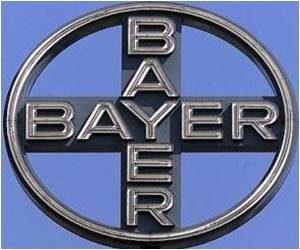The US Supreme Court on Thursday allowed a class-action suit by alleged victims of the anti-cholesterol drug Baycol, which was taken off the market in 2001 by German pharmaceuticals giant Bayer.

Several legal cases were lodged over the drug, also known by its chemical name cerivastatin.
The suits were put together in a federal court in Minnesota, but in the case delivered to the high court, the plaintiffs were from West Virginia.
Bayer, which had argued that the class-action suit could not proceed because the judge in charge of cases in Minnesota banned such suits back in August 2005, expressed disappointment with the decision.
"Bayer is disappointed by today's ruling, which overturns a decision by the US Court of Appeals for the Eighth Circuit that upheld a decision to prevent the proposed state economic loss class action lawsuit from moving forward," the company said in a statement.
Bayer will continue to defend this case, including on the issue of class certification, should it move forward at the state level," the company statement said.
Advertisement
Bayer voluntarily recalled the drug in August 2001 after 31 deaths due to rhabdomyolysis, a breakdown of muscle tissue.
Source-AFP









